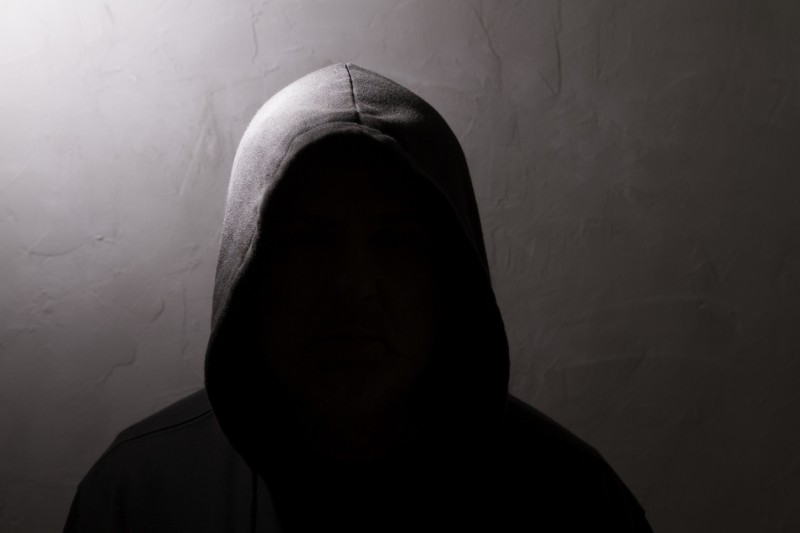Sooner or Later: A Lesson From the Life of Abimelech
by Eddie Foster - September 19, 2019
Why is it that sometimes it seems like evil is winning? Why do some people who do horrible things seem to get away with it for so long? Is God asleep at the wheel?

Lex Luthor. Al Capone. Emperor Palpatine. Adolf Hitler. When we hear those names (two of them fictional and two of them all too real), we probably think of evil, cruelty or just simply bad guys.
There are many more of course.
The Bible is full of bad guys. We know that all human beings are complex, nuanced and not so two-dimensional as to be totally pure evil, hence the tree of the knowledge of good and evil. Still, there are some “bad guys” in the Bible who lean pretty heavily on the bad side. They aren’t good guys struggling with weaknesses or people doing what they think they need to do in order to get by—but real bad guys. The kind who go beyond what most of humanity would collectively determine as decent behavior.
One such bad guy was Abimelech.
Abimelech’s story
Abimelech’s father was Gideon—the famous judge who delivered Israel from Midian. After his great victory, the Israelites actually wanted to crown him king. Gideon humbly and correctly turned it down saying: “I will not rule over you, nor shall my son rule over you, the LORD shall rule over you” (Judges 8:23).
That doesn’t mean everything Gideon did was right. After returning home, he fathered 70 sons by many wives. And he had one son who wasn’t born to his wives, but to a concubine in Shechem. That son was Abimelech (Judges 8:31).
Judges 9 shows how Abimelech grew up to be an ambitious leader. Using his family connections, he convinced the men of Shechem that a son of Gideon—himself, of course—should rule, and he hired a band of thugs to kill his 70 half-brothers to ensure that no other son of Gideon could challenge him. However, one half-brother (Jotham) escaped this evil act and went into hiding.
After this cruel and evil act of mass fratricide, Abimelech was crowned king over a portion of Israel and reigned for three years. Though Saul was the first legitimate king of Israel, Abimelech was the first actual king over a portion of Israel.
After Abimelech was made king, Jotham, his half-brother who escaped the massacre, very publicly rebuked Abimelech’s actions through a parable that essentially said: If Abimelech would be a good king, serving the people and not himself, then it would work out. But if he would not serve his people but would do evil, everything would fall apart. Abimelech and the people would destroy each other.
Slowly, through the rest of the chapter, we see this prophetic parable play out. We see the source in verse 23: “God sent a spirit of ill will between Abimelech and the men of Shechem; and the men of Shechem dealt treacherously with Abimelech, that the crime done to the seventy sons of Jerubbaal [Gideon] might be settled and their blood be laid on Abimelech their brother, who killed them, and on the men of Shechem, who aided him in the killing of his brothers.”
All-out war between Abimelech and Shechem broke out, with bad guy Abimelech firmly winning and getting the upper hand.
What?
But he’s the bad guy. The bad guy isn’t supposed to win! This bad guy gets to be king and gets the upper hand even when his supporters turn on him.
Where is the justice? Was God “asleep at the wheel”? Well, justice finally came. During one battle, Abimelech took a city whose residents had sought refuge in a tower. Abimelech was about to burn it down when a woman in the tower dropped a rock on his head, crushing his skull. He didn’t die immediately, so he asked his armor-bearer to finish him off so he wouldn’t experience the culturally humiliating death of being killed by a woman (verses 51-54).
Verses 56-57 tell us why this happened: “Thus God repaid the wickedness of Abimelech, which he had done to his father by killing his seventy brothers. And all the evil of the men of Shechem God returned on their own heads, and on them came the curse of Jotham the son of Jerubbaal.”
So, the illegitimate first king of Israel didn’t “win” in the end. Though it didn’t come immediately, justice was served for his evil deeds. What does this teach us?
What we can learn from Abimelech’s story
Here are a few takeaways to consider:
- Abimelech’s power, prosperity and success meant absolutely nothing when God intervened. God was displeased with both Abimelech and the men of Shechem, and the course was set for them to destroy each other. This teaches us that no matter how much clout or power people seem to have, sooner or later God will deal with them—and often in a way no one expects.
- Abimelech met a very abrupt and just end, despite seeming to hold the upper hand. Just imagine what he must have thought: People support me, I’ve ruled for three years, I’m winning my battles—I’ve succeeded. Then suddenly his skull was crushed in a routine battle. So, even though it may seem to us as if nothing is being done to stop evil people, we can be confident God will deal with them in the long run.
Many writers in the Bible have asked the age-old question (that we so often ask today): “Why do the wicked prosper?” How is this person getting away with this stuff? Why does God allow it?
Through the story of Abimelech, hopefully we can see that God repays the wickedness of bad guys, even when justice seems to us to be delayed. Ecclesiastes 8:11 states, “Because the sentence against an evil work is not executed speedily, therefore the heart of the sons of men is fully set in them to do evil.”
God doesn’t always intervene and bring justice immediately. At times He waits—for a number of reasons. Perhaps He waits to give people time to repent. (We are all thankful when He does this for us; we’re sometimes less thankful when He does it for others.) Sometimes He has other purposes for waiting—purposes that we can’t even grasp. Sometimes He simply chooses to let things play out for a time to let people experience the consequences of their actions. In some cases, He won’t bring justice until after Christ’s return.
Whatever God is doing in any particular situation, we can be assured that He is not “asleep at the wheel.” Sooner or later, He will deal with evil.
To learn more, read “Imprecatory Psalms: What Can We Learn From Prayers for Revenge?”
Continue Reading

How to Talk to Your Teacher About the Feast
by Sarah Hanson - September 9, 2019

The Character of a True Friend
by Madeline and Abigail Mann - September 5, 2019
